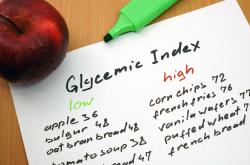Eating Well When You’re Tired
How to make positive food choices and eat in the best way to alleviate chronic tiredness and regain your vitality?

Healthy diet for getting better
Eating well and regularly is one of the most important things you can do when you’re suffering from tiredness. Whatever the cause of your fatigue, wise food choices will help you with your recovery.
There are three important factors to bear in mind:
- Choosing foods, which will help you regain your energy in the long term
- Avoiding foods that can worsen your tiredness and slow your progress towards getting better
- Planning a number of well-balanced meals and healthy snacks throughout the day.
Many of us eat haphazardly, often “on the run”, and whatever is easily available. We eat without much thought, and sometimes without sitting down and chewing our food properly. If you want to overcome your chronic tiredness, this kind of eating is going to have to change. You will need to start planning well-balanced meals which will help your body to heal.
Which foods should you eat?
You need to have a balance of carbohydrates, proteins and fats in your diet. So if you are looking at a plate of steak and vegetables, the later should take up at least three times as much room on your plate as the meat. Another good rule of thumb is to split your proteins into two halves; one half coming from animal sources, and the other from nuts and beans. Avoid meat in the evening as it takes a long time to digest, which can make it harder for you to go to sleep. Choosing the right fats is important as well. Stay clear from processed fats and select butter, olive oil and other non-hydrogenated oils.
Avoid meat in the evening as it takes a long time to digest, which can make it harder for you to go to sleep. Choosing the right fats is important as well. Stay clear from processed fats and select butter, olive oil and other non-hydrogenated oils.
Not all carbohydrates are the same. There are simple carbs e.g. sugar, white flour (which break down in the body fast) and complex carbs e.g. starchy vegetables, whole grains (which take much longer to be processed).
Each carbohydrate has a specific glycemic measurement. The higher the score, the faster it will break down in your body. You want to aim for the foods with low glycemic Index. This way you will avoid insulin spikes, which temporarily give you energy and then drain you, leaving you in an irritable, exhausted state (for more details about this, please seeGlycemic Index, blood sugar fluctuations and tirednessandGlycemic Index of Common Foods.
Most vegetables and the majority of fruit (with a few notable exceptions such as watermelon) are low on the glycemic index, making them excellent choices for day to day meals. Try to buy organic produce whenever you can as this doesn’t have fertilizer or pesticide residues. If it’s not available, then consider a small home garden where you can grow your own vegetables. Gardening is also an excellent form of exercise. Even if you don’t have a garden, you could grow tomatoes and herbs on a sunny window sill.
Try to fill your plate with as many colorful vegetables as possible. Use a variety of serving methods – raw, grilled, steamed, juiced – as different methods of cooking bring out different nutrients in each vegetable. Sprout some organic seeds for super nutrition and add them to a salad. Good nutrition will build your body up and provide you with reliable energy. You may also need to think of supplements for particular vitamins and minerals (please seeSupplements for Tiredness, andHerbs for Tiredness).
And don’t forget that water is essential. You should drink eight 8 ounce glasses of water a day. Avoid drinking it with your meals, or just before as you run the risk of diluting your gastric juices and thus being unable to process your food efficiently. [Please seeTiredness and Dehydrationfor more details.]
Which foods should you avoid?
Stay away from all foods high in sugar. This includes colas and sodas, which are loaded with sugar, or even worse, fake sugars such as aspartamine.
Try to cut down or avoid processed food, and choose fresh food instead. In general, be suspicious of any food that our ancestors would not have eaten. Modern food, particularly one which is processed or is ‘fast food’, contains a huge number of additives. Many of these are toxic to the body and deplete it of vital minerals and vitamins. It pays to read the labels on food very carefully for additives such as MSG (monosodium glutamate) and aspartame (a synthetic sweetener). Both these chemicals have a negative effect on the brain (and other effects which are still being researched).
If you have been taking antibiotics, you should be especially careful to avoid high G.I. foods as this will make any Candida (yeast like fungus) worse. Please seeDigestive health and fatiguefor more details.
Avoid caffeine and other stimulants. Caffeine is present in coffee, of course, but also to a lesser extent, in most teas, as well as many cola and soda drinks. Caffeine stimulates the body, making you feel briefly energized, but it can interfere with sleep patterns, making you more fatigued in the long run.
A final point – if you find that you are craving for a particular food, don’t automatically eat it. A craving often indicates an allergy. Allergies upset the bowel and create tiredness. [Please seeTiredness and Common Food Allergiesfor more details.]
On the other hand, a craving may indicate that your body requires an additional nutrient. Chocolate, for example, is high in Magnesium. Getting a craving for chocolate, might mean that you need to take additional Magnesium.
How should you plan your eating?
You should aim for either five or six small meals in the day, or else three light, nourishing meals, with substantial snacks in between. Don’t eat heavily in the evening, so that your system is not stressed before you go to sleep. You may want to consider a light snack, however, before retiring, as this can assist sleeping by keeping your blood sugar at even levels during the night.
It really helps to get a balanced approach to eating if you make yourself the menus for the next few days and go shopping for the specific items you need to make these meals. Making eating a significant and delightful activity is also important. Try to relax beforehand with some soothing music, or by looking at something beautiful. Eat in the fresh air when you can, and enjoy the company of friends at mealtimes. Present food in as appetizing a way as possible, with attractive plates and garnishes of fresh herbs.
Some cultures like to say grace before eating, and this is an excellent way of creating an atmosphere of relaxation and gratitude. You may want to find your own way of celebrating a mealtime. Remember to eat as slowly as you can, and chew each mouthful 30 times. The enzymes in your saliva will help you digest your food more easily. Bon appétit!



















Leave a comment